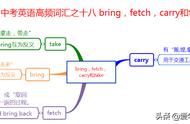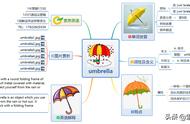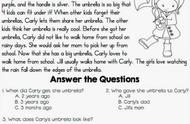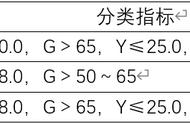Unit 3 What are you doing for vacation?
一、词汇精讲
1、 sound
(1)sound作系动词,后接形容词作表语;也可以接介词like,构成sound like,表示“听起来像…”。
The song sounds wonderful! 那首歌听起来太精彩了!
That sounds like a good idea. 那听起来像一个好主意。
(2)sound也可以作名词,意为“声音、响声”。
At midnight he heard a strange sound. 半夜里他听到一种奇怪的声音。
【拓展】
(1)sound、voice和noise的辨析:
sound可以指人或动物发出的声音或物体碰撞的声音。这个词的使用范围很大。可以说,大自然的任何“声音”都可以用sound。
Light travels much faster than sound. 光的传播速度比声音快得多。
noise意为“噪音”、“喧闹声”,常指不悦耳、不和谐的嘈杂声。
Don’t make any noise! 别吵闹!
The noise wakes me up. 噪音吵醒了我!
voice一般指人的声音,说话、唱歌、谈笑都可用voice。sound和noise不仅能指人的声音,还可以表示别的动物发出的声音,而voice除了有时可指鸟的声音外,很少表示其它动物的声音。
The girl has a beautiful voice. 那女孩嗓音很美。
They are talking in low voices. 他们正小声交谈。
When the teacher came into the classroom,our monitor spoke in a loud voice,“Stand up!” 老师走进教室时,班长大声喊:“起立!”
(2)sound、hear和listen的辨析:
sound是系动词,后接形容词,表示“听起来”;hear是及物动词,表示听到的结果;listen是不及物动词,后接宾语时,要加上to,表示听的动作。
He listened carefully, but he heard nothing. 他仔细听,可什么也没听到。
Look! He is listening to the music there. 看,他正在那里听音乐。
2、 send
send是及物动词,意为“寄,发送”,过去式和过去分词都是sent,其后能接双宾语,即send sb. sth.=sendsth. to sb.。
He sent me a postcard. = He sent a postcard to me. 他寄给我一张明信片。
【拓展】 动词接双宾语时,有两种结构:
① 动词 间接宾语(sb.) 直接宾语(sth.)
② 动词 直接宾语(sth.) 介词(for/to) 间接宾语(sb.)
能接双宾语的动词可分为两类:
① 常用介词to的动词有:send、give、show、bring、teach、tell等。
give sb. sth. = give sth. to sb.
show sb. sth. = show sth. to sb.
② 常用介词for的动词有:buy、sing、make、cook、get等。
buy sb. sth. = buy sth. for sb.
make sb. sth. = make sth. for sb.
3、 plan
(1)作可数名词,意为“计划,方案”。
What are your plans? 你的计划是什么?
Make a plan for study, please. 请制定学习计划。
(2)作动词,意为“计划,打算”,其现在分词为planning,过去式和过去分词为planned。
常用于“plan to do sth.计划干某事”的结构中。
They are planning to go hiking this weekend.
他们正在计划本周末远足的事。
4、 forget
forget是及物动词,意为“忘记”,与remember意思相反,其过去式为forgot,过去分词为forgot或forgotten。
I hardly forgot his name. 我几乎从没忘记过他的名字。
forget后可接动词不定式,构成forget to do sth.结构;也可接动名词,构成forget doing sth.的结构,但二者意义有区别:
forget to do sth.表示“忘记要做某事”,事情还没有做;forget doing sth.表示“忘记曾经做过某事”,事情已经做过了。
Don’t forget to turn off the light when you leave. 离开时别忘记关灯。
He forgot going to Shanghai with his parents when he was five years old.
他忘记五岁时曾经和父母去过上海。
【拓展】
类似forget的动词还有:
remember to do sth. 记得去做某事
doing sth. 记得做过某事
try to dosth. 尽力做某事
doing sth. 尝试做某事
stop todo sth. 停下来(一件事)去做另一件事
doing sth. 停止做某事
5、 leave
leave是动词,意为“离开”,相当于go away,是瞬间动词,不能和一段时间连用。
He left Beijing yesterday. 他昨天离开北京。
【拓展】
(1)leave和leave for的辨析:
leave swh.意为“离开某地”;而leave for swh.意为“前往某地,到某地去”。 leave swh. for swh.意为“离开某地去某地”。
When is the train leaving? 火车什么时候离开?
Mr. Smith is leaving for Paris next month. 史密斯先生下个月将前往巴黎。
(2)leave和forget的辨析:
leave意为“忘记,留下”时,指将某物遗忘在某个地方,其后常接表示地点的词语;
但forget意为“忘记,遗忘”时,不能同表示地点的词语连用。
He left his schoolbag at home. 他把书包忘在家里了。
He forgot his schoolbag this morning. 他今天上午忘记带书包了。
6、 famous
famous是形容词,意为“著名的,有名的,出名的”,在句中可作定语或表语。
Yao Ming is a famous basketball player. 姚明是一位著名的篮球运动员。
常见的搭配有:be famous as和be famous for等。
【拓展】
be famous for与be famous as的辨析:
be famous for意为“以…而著名”,for后接著名的原因。
be famous as意为“作为…而著名”,as后接身份、职业的名词。
China is famous for the Great Wall. 中国因长城而闻名。
Lu Xun is very famous as a writer. 鲁迅作为一名作家而著名。
7、 think about
think about是“动词 介词”的动词短语,意为“考虑,思考”。后面接名词、代词或动名词作宾语。
He is thinking about what I said. 他正在考虑我所说的话。
【拓展】
think about、think of、think over和think out的辨析:
(1)think about指从各方面去思考。其常用搭配为:
think about sth. (名词或代词)
think about doing sth.
think about 疑问代词或副词 to do sth.
She is thinking about changing her job. 她正在考虑换个工作。
(2)think of意为“想起,记起,考虑,认为”,是动介结构。
I can’t think of his name at the moment. 我一时想不起他的名字。
(3)think over着重“仔细考虑,反复考虑”,是动副结构。常用搭配为:
think over 名词
think 代词 over
think over what等引导的从句
It’s a difficult problem. I must think it over
.这是一道难题,我得仔细思考思考。
(4)think out意为“想出”,是动副结构,代词需放中间。
At last he thought out the maths problem. 最后,他想出了那道数学题。
注意:(1)think about与think of均为动介结构。表示“考虑”或“认为”,一般可互换。
(2)当“考虑”某事或计划等是否可行时,不能用think of。
(3)当think of表示“关心,想出,记得,想念”时,不能用think about。
8、 something different
something different意为“不同的事情”,形容词different作后置定语修饰不定代词something。形容词修饰不定代词,常放在不定代词之后,即形容词作不定代词的后置定语。
There is nothing new in today’s newspaper.
今天的报纸上没有什么新鲜事。
Do you have anything important to tell me?
你有什么重要的事情要告诉我吗?
He heard something interesting outside today.
今天他在外边听到了一些有趣的事。
【拓展】
(1)不定代词作主语时,相当于第三人称单数。
Something is wrong. 某东西有问题。
(2)常见的不定代词还有:anything、nothing、somebody、someone、anybody、nobody、no one等。
二、句式精讲
1、 How about…?
how about意为“…怎么样?”,about是介词,后面接名词、代词或动名词,即:
how about sb./sth. (可接表示人或物的名词及代词)
how about doing sth.
How about sitting in the garden? 在花园里坐坐怎么样?
I’m going to the park. How about you? 我要去公园,你呢?
How about your exam last week, Tom? Tom,你上周考试怎么样?
【拓展】
how about与what about通常可以互换,后接名词、代词或动名词,但不能接动词不定式或动词原形。
2、 finish doing
finish意为“完成,结束”,作及物动词时,其后可跟名词、代词或动名词。 即:finish sth.或finish doing sth.。
I finished my homework this morning. 我今天上午做完了作业。
When did you finish drawing the picture? 你什么时候画完那副画的?
【拓展】
能接v.-ing作宾语的动词还有:practice、enjoy、mind、keep等。
practice doing sth. 练习做某事 enjoydoing sth. 喜欢做某事
mind doing sth. 介意做某事 keep doing sth. 一直做某事
3、 spend…doing/on sth.
spend是动词,意为“花费(时间或金钱)”。其过去式为spent。
spend 时间/金钱 (in) doing sth. 花费时间或金钱做某事
时间/金钱 on sth. 花费时间或金钱在某物上
I spend two hours in reading every day. 我每天花两个小时阅读。
He spends 20 yuan on books every month. 他每月花20元买书。
4、 decide on sth.
decide是动词,意为“决定,选定”。名词为decision。
decide on…意为“由…决定;决定于”。后接名词、代词或动名词作宾语。
I decided on going to Beijing at last. 最后我决定去北京了。
My mother decided on the red dress. 我妈妈决定买下那件红色的裙子。
【拓展】
decide的用法:
(1)decide sth.
I can’t decide anything at the moment. 现在我不能做出任何决定。
(2)decide to do sth. 决定做某事
We decide to go to Paris next month. 我们决定下个月去巴黎。
5、 ask sb. about sth.
ask sb. about sth.意为“询问某人有关某事;向某人打听某事”。
My father often calls me up and asks me about my study.
爸爸经常给我打电话,询问我的学习情况。
【拓展】
与ask有关的搭配:
(1)ask sb. sth. “问某人某事”。
Can I ask you some questions? 我能问你一些问题吗?
(2)ask sb. to do sth.“让某人做某事”,其否定形式为ask sb. not to do sth.“让某人不要做某事”。
I often ask him to help me with my housework. 我经常让他帮助我做家务。
My mother asked me not to read in the sun. 妈妈让我不要在太阳下看书。
(3)ask for sth.“请求某事,要某物”,相当于want sth.
Please ask for help if you have some problems.如果你有问题,请寻求帮助。
(4)ask sb. for sth.“向某人要某物”。
If you don’t find the way to the school, please ask a policeman for help.
如果你找不到去学校的路,请向警察求助。
6、take sth. with sb.意为“随身携带某物”
You must take the food with you. 你必须带上这些食物。
Take an umbrella with you before going out. 出门前随身带一把伞

























